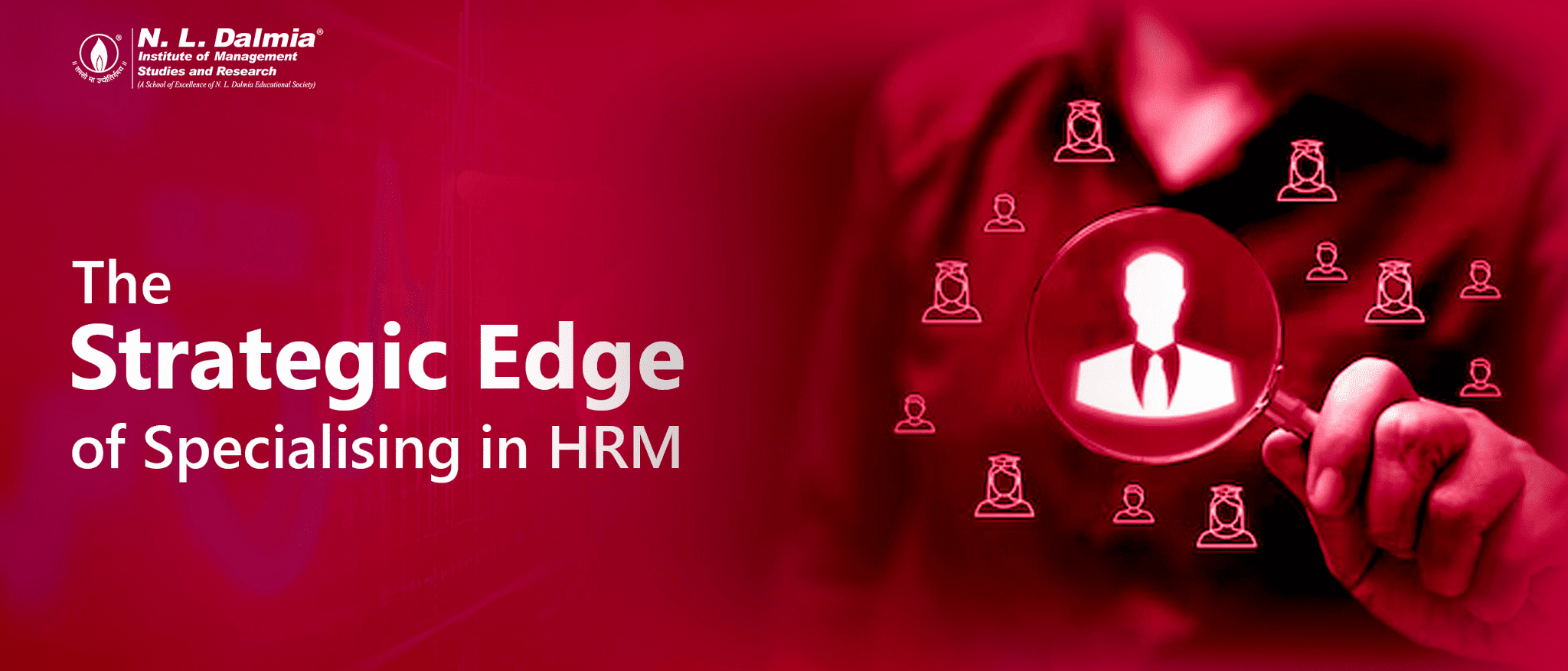In today’s dynamic business landscape, specialising in Human Resource Management (HRM) offers a strategic edge for professionals looking to impact their organisations significantly. With the ever-evolving nature of work, HR challenges and solutions are at the forefront of creating resilient and thriving workplaces. Let’s explore why studying HRM, understanding workforce management and pursuing a PGDM in HRM can be a game-changer for your career.
Understanding HRM: More Than Just Hiring
Human Resource Management is about more than recruiting and onboarding new employees. It’s a multifaceted discipline encompassing various activities designed to optimise an organisation’s workforce. From managing employee relations and ensuring compliance with labour laws to developing strategic initiatives for talent acquisition and retention, HRM plays a crucial role in driving business success.
HR Challenges and Solutions
Today’s HR professionals face a myriad of challenges. These include attracting and retaining top talent, fostering a diverse and inclusive workplace, managing remote teams and ensuring employee well-being. Addressing these issues requires innovative solutions and a proactive approach.
For instance, creating a continuous feedback culture can enhance employee engagement and performance. Regular recognition of employees’ efforts can foster a learning culture and encourage skill development. Additionally, implementing comprehensive diversity training programs can help build empathy and understanding across diverse groups, promoting a more inclusive workplace (Whatfix) (Workhuman).
What is Workforce Management?
Workforce management is a key component of HRM that involves optimising the productivity of an organisation’s employees. This includes planning, forecasting, scheduling and tracking employee performance to ensure that the right people are in the right roles at the right time. Effective workforce management can lead to improved efficiency, reduced labour costs and enhanced employee satisfaction (Oreed).
The Importance of Upskilling and Reskilling
With the rapid pace of technological advancements, upskilling and reskilling have become critical for maintaining a competitive edge. According to recent studies, over 50% of employees will need significant upskilling to meet the evolving demands of their roles. HR professionals must proactively address these needs, bridging the skills gap and empowering employees to succeed in a digitally transformed work environment (Oreed).
Why Study HRM?
Specialising in HRM provides a comprehensive understanding of how to manage and develop an organisation’s most valuable asset—its people. Here are a few compelling reasons to consider studying HRM:
- Strategic Influence: HR professionals are strategic partners in shaping an organisation’s future. By aligning HR strategies with business goals, they can significantly improve productivity and employee satisfaction.
- Versatility and Growth: A career in HRM offers versatility, with opportunities to work in various industries and sectors. As organisations increasingly recognise the importance of effective HR practices, the demand for skilled HR professionals grows.
- Impactful Work: HR professionals have the unique opportunity to impact the lives of employees positively. From fostering a supportive work environment to promoting diversity and inclusion, HRM allows you to contribute to creating a better workplace for all.
Pursuing a PGDM in HRM
A Post Graduate Diploma in Management (PGDM) in HRM is an excellent way to gain specialised knowledge and skills in this field. Programs like those offered by N. L. Dalmia Institute of Management Studies and Research provide a comprehensive curriculum that covers essential HRM topics, including talent management, employee relations, organisational behaviour and strategic HRM.
Benefits of a PGDM in HRM
- Advanced Knowledge: Gain in-depth knowledge of advanced HRM concepts and practices, preparing you for leadership roles in HR.
- Practical Skills: Develop practical skills through real-world case studies, internships and industry projects, ensuring you are job-ready upon graduation.
- Networking Opportunities: Connect with industry professionals, alums and peers, building a network that can support your career growth.
Conclusion: Your Path to HR Leadership
Specialising in HRM offers a strategic advantage in today’s competitive job market. Whether you’re addressing complex HR challenges and solutions or exploring what workforce management entails, a deep understanding of HRM principles is invaluable. Pursuing a PGDM in HRM from a reputable institution like N. L. Dalmia can equip you with the skills and knowledge needed to excel in this dynamic field.
In conclusion, HRM is more than just a career, it’s a strategic role that shapes organisations’ futures. By investing in your education and gaining expertise in HRM, you can become a vital player in creating workplaces that thrive in the face of change.

